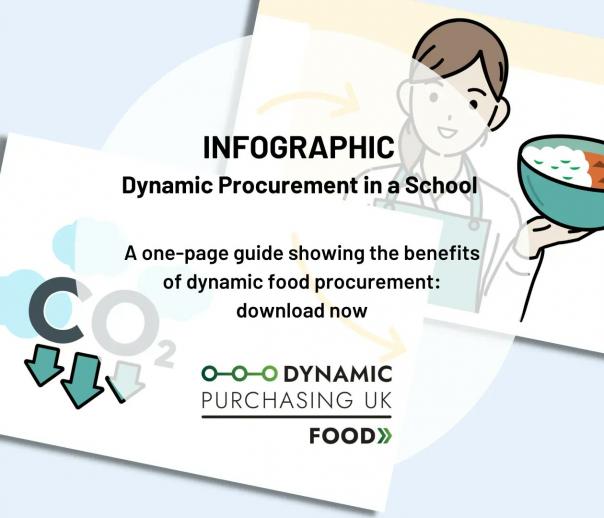
Dynamic Food Procurement means greater choice and transparency when it comes to ordering ingredients. By opening up the market to smaller, local producers, chefs and caterers will be able to choose suppliers on the basis of organic certification, food miles, carbon footprint, seasonal growing practices, fair trade or whatever priority they are working to, rather than cheapest or fastest.
Caterers can order online, where they can schedule a consolidated delivery at a convenient date and time, with the buying organisation or framework handling the procurement. Cooks can order from dozens of producers on one single online store and arrange one consolidated delivery and invoice that can be paid on payment cards or on account.
The helpful one-sheet explainer highlights the benefits of dynamic procurement to kitchen managers and cooks using a school as an example. Dynamic Food Procurement has already been successfully piloted in Bath and North Somerset where more than three million meals were provided in the region’s primary schools.
Richard Howroyd, head of strategic procurement and commissioning for Bath and North East Somerset Council, said: “When we did our original review of success, everyone was saying, well, it’s going to cost us more. No, it didn’t. It was more cost effective. We did not see increases in cost. In fact, we beat the market in lots of areas, in particular around meat, fruit and veg, at a time where we were seeing massive inflationary increases in lots of other areas not involved in the pilot.
“I certainly believe that using short supply chains in particular, really encourages higher quality produce, and higher quality produce doesn’t necessarily cost more either. And the quality often means there is less wastage, it’s a better flavour. So more of it is eaten and less is wasted. There are so many advantages around taking it this route.”